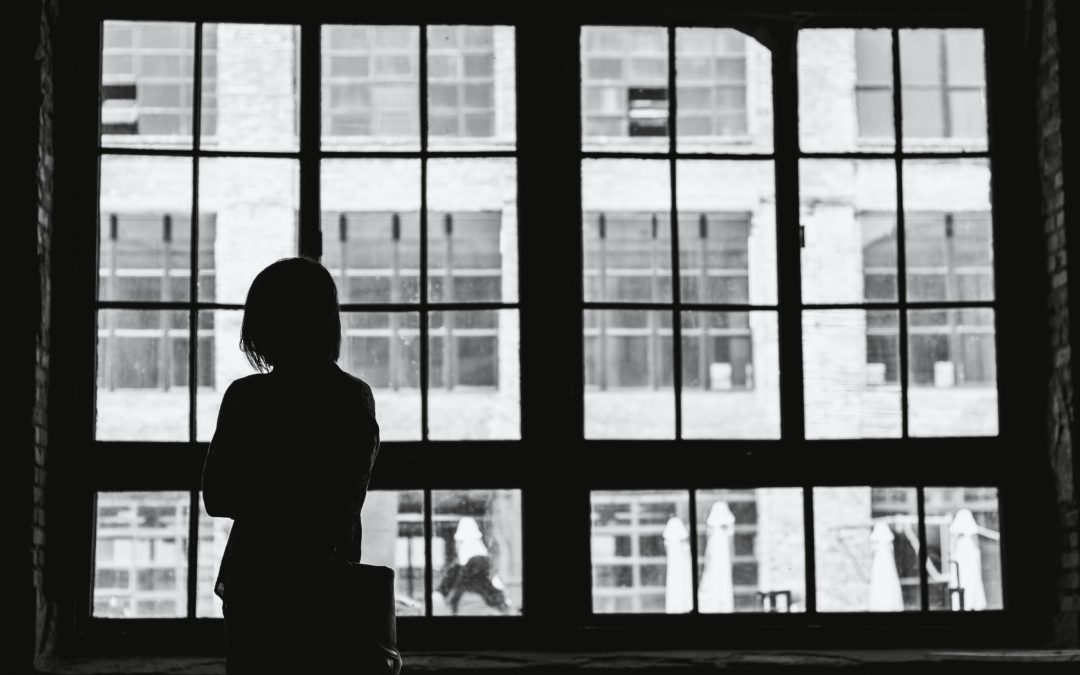By Margaret Fitzgerald
After my initial manic episode at eighteen, my friends were making purchases for their dorm rooms and packing up for far away colleges. I was chronically depressed, which often happens after coming down from a manic episode. Friends were saying goodbye and I was staying home, which was a constant reminder that I was broken.
I really lost it when a friend wrote a happy letter about how she was having a great time at college and she had just pledged a sorority. I felt so alone. It wasn’t enough that I could barely function, but my friend had enough energy to go to class, make good grades, and be accepted into a sorority? I was so jealous! I shed so many tears over this, and there was no one to talk to about it.
My doctor suggested a counselor, but she in a far-away town and after sustaining a mental health hospitalization, I was afraid of driving there (pre-GPS), while being very strongly medicated. Also, I was afraid that she would see some kind of psychosis that others around me did not see and that she would see that I was locked in the ward again with bars on the windows and stainless steel toilets.
I remember during that time that I was going to community college and was giving it my all, which looking back was about thirty percent of what was expected. I had a sociology class that ended at 10:40am and when it ended, I went home and went straight to bed.
My family, namely my stepfather, accused me of being lazy. “Get up! Get some hobbies! Go ride your bike! Go for a walk!” What he did not understand was that I had done so much already that day with the level of depression that I was experiencing. All I wanted was for him to “get it,” but he was of the “Pull yourself up by the bootstraps” mentality. He could not see how sick I was, because he did not see the depression in my affect, nor did not understand.
I had so many people abandon me when I experienced my first manic episode, which was another depressive trigger. In addition, I was using every single bit of expendable energy to get out of bed, take a shower, do my hair, put on clean clothes, drive twenty minutes to the community college, and get there on time. There wasn’t energy for a walk or a bike ride when I got out of class. I truly needed to go to bed and escape. I often prayed that I would die of natural causes while in that bed so that I would not have to experience this exhaustion any longer.
I did not know how to define the exhaustion back then, and my psychiatrist certainly did not acknowledge it. His idea of treatment was to have me listen to relaxation tapes in his office for a few minutes and then bill the insurance and charge a co-pay. Needless to say, this type of psychiatry did nothing but devastate the family finances. In 1990, there were not as many resources and medications to assist someone with bipolar depression.
I was so lonely that I would call my mother at work and tell her that I was sick and ask her to come home; she usually would. My stepfather caught wind of this and he told me that we were not going to have the house repossessed because of me. He already was making me feel guilty about having driven up psychiatric hospital bills and he was unable to afford brand name foods from the grocery store. I
wish that there would have been some mechanism back then for him to see that I was really in very bad shape.
I continued to pray daily that I would die. One night I went out with two friends who were still in high school and we were returning home from a neighboring town during an ice storm. The driver slid off of the road and hit a highway sign. The car was pretty banged up. We were scared but no one was injured. I deemed that to be a close call and I never asked God to take my life again, as he could have answered my prayer and perhaps all three of us could have died.
I pray that parents that see this writing will glean knowledge about the depression experienced after their child experiences a manic episode, regardless of how many manic episodes that they have had in the past. Coming down from a manic episode is hard, and much patience and understanding is necessary from all parties. Assuming that your loved one is lazy after a manic episode could be an uneducated thought. Maybe she is doing the best that she can.
If you think that your loved one should take a walk, she may need someone to accompany her. Please consider being that person. You believe that your loved one needs to exercise more? Consider finding a way to pile some bikes in the bed of someone’s truck. Take her on a short, scenic bike ride. Making memories is important, and that bike ride will create a great memory and may be all that she can handle. And please remember to let your loved one know how loved they are, regardless of their bipolar depression and the devastation after the letdown of a mania.
The content of the International Bipolar Foundation blogs is for informational purposes only. The content is not intended to be a substitute for professional medical advice, diagnosis, or treatment. Always seek the advice of your physician and never disregard professional medical advice because of something you have read in any IBPF content.


